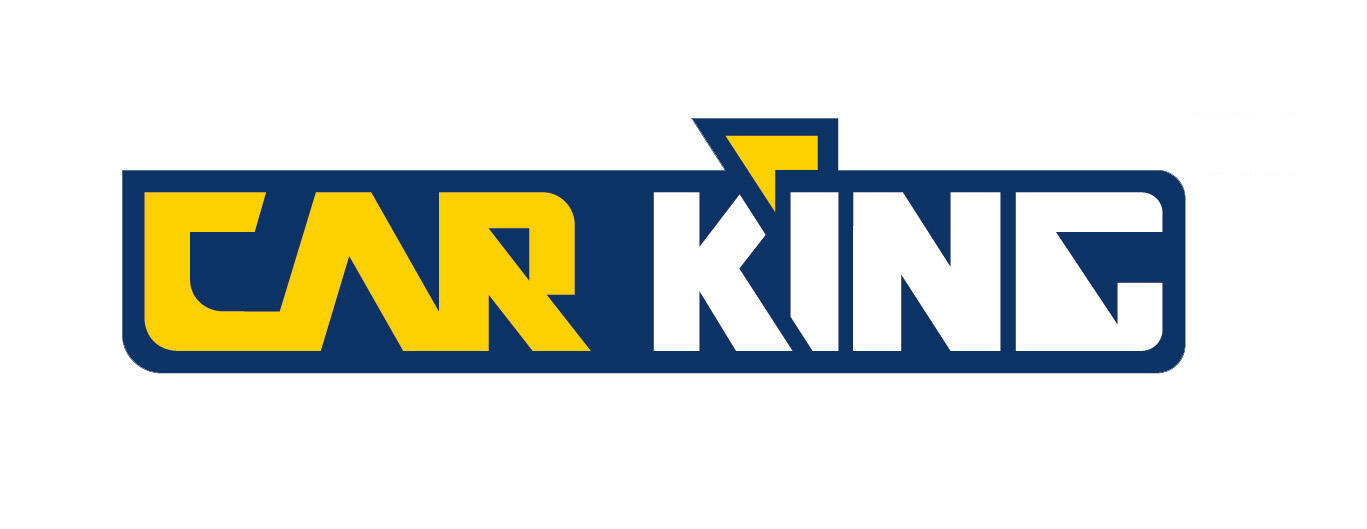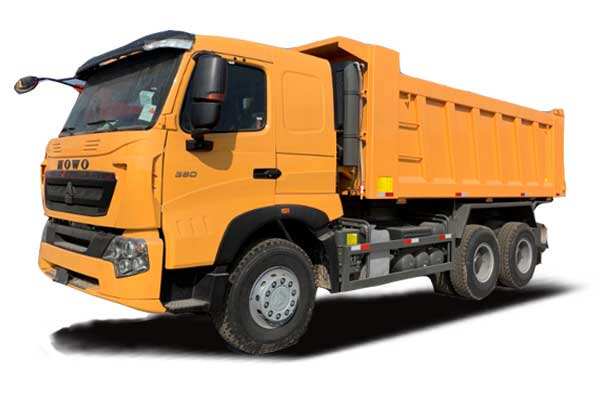Чамайг хөдөлгөөн рүү захиалга өгөх ёс Тээврийн хэрэгсэл ? Үндэслэлийн нөхцөлсийг тайлбарлах
Ачааны машин эзэмших нь үйл ажиллагааны үр ашигтай байдлыг сайжруулдаг. Гадаад тээврийн үйлчилгээнд тулгуурлахгүйгээр өөрийн тээврийн хэрэгсэлтэй болох нь цаг алдалгүй хийх шаардлагатай ажлуудыг илүү хянах боломжийг олгодог. Хүргэлтүүд цагтаа хийгдэж, үйлчлүүлэгчид урт хугацааны хүлээлгүйгээр хурдан үйлчлүүлдэг. Гадаад логистикийн нийлүүлэгчидтэй хамт ажиллах явцад гарч болох хоцрогдлыг арилгаж, бүх үйл ажиллагаа глад урсдаг болдог. Иймд компани өөрийн тээврийн бүрдэлтэй байх нь бүхэлдээ илүү глад явагддаг. Хамгийн их хэмжээгээр жижиг бизнесийн эзэд үйлчлүүлэгчдийн таалалыг авч, орлогоо тогтвортой байлгахад энэ нь маш их нөлөө үзүүлдэг.
Мөнгө хэмнэх нь трактор эзэмшихийн тулд бизнесийн нэг гол шалтгаан юм. Тодорхойлбол, тракторыг анх худалдан авах үнэ их байдаг ч ихэнх нь урт хугацаанд ашигтай байдаг. Компаниуд өөрсдийн флотыг эзэмшиж, гадны тээврийн үйлчилгээнд тулгуурлахгүй бол сар сарын түрээсийн хураамжийг бүрэн хэмнэнэ. Аж ахуйн нэгжүүдийн өмчлөх тракторыг засварлах, ашиглах нь түрээслэсэн эсвэл ажлыг гаднаас гүйцэтгүүлэхээс илүү хямд байдаг нь тогтоогдсон байдаг. Хэдэн жилийн дараа энэ зөрүү нь ашгийн тооцоонд ихээхэн нөлөө үзүүлдэг.
Ачааны машин эзэмших нь логистикийг зохицуулахад ихээр сулрал өгдөг. Өөрийн ачааны машинтай компанийн хувьд тэдний болон үйлчлүүлэгчдэд тохирох цагийн хуваарь, замын чиглэлийг өөрчлөх боломжтой. Хэрэгцээ шилжилт хийх үед эдгээр компанийн хувьд гуравдагч талын үйлчилгээг хүлээх шаардлагагүй болдог. Тэдгээрийг шаардлагатай газар очих боломжтой. Компанийн өмчлөх ачааны машинд хийсэн хөрөнгө оруулалт нь гадны тээвэрлэгчид тулгуурлах шаардлагагүй болгоно. Мөн компанийн хувьд зах зээлийн хүчтэй өөрчлөлтүүдийг амархан зохицуулж чаддаг байрд суурилуулдаг.
Тоотын ашиглалтын зарим үнэтэй асуудлууд
Эквивалент ба үнэ цэнэгийн нэмэлт үзүүлэлт
Кранк арендаар авахын оронд худалдан авснаар компанийн хөрөнгөд эрх чөлөөтэй болох, мөнгөн дүнгийн давуу талыг олох боломжтой. Компаниуд кранк арендаар авах үед тэдгээрийг үнэнч худалдан авч чаддаггүй боловч худалдан авснаар ирээдүйд илүү өндөр үнэтэй болох боломжтой зүйл авдаг. Хэдэн жилийн дараа дахин борлуулах үнэ ихэвчлэн өсдөг тул энэ нь анхны худалдан авалтын зардлын зарим хэсгийг нөхөн олгож чаддаг. Жижиг тээврийн бизнесүүд тус бүр эзэмшсэн тээврийн хэрэгсэл нь тэдгээрийн санхүүгийн байдлыг огцом сайжруулдаг тул энэ нь мөнгөн гүйлгээний ухаалаг менежмент гэж үздэг. Санхүүгийн бичилбүүр дээр бүртгэлтэй чанарын кранк компанийн нийт өмчийн үнэ цэнийг нэмэгдүүлэхээс гадна банкуудтай гэрээ байгуулах эсвэл санхүүжилт авах үед илүү сайн байр суурийг олгож чаддаг.
Зээл, нөөцлөл ба хасагдлын ашиг
Ачааны машин эзэмших нь бизнес эзэгтэйд зарим хэмнэлттэй татварын льгийг олгодог. Тэд өөрсдийн зарцуулалтыг бүрэн буцааж болох боломжтой. Бизнес эрхлэх явцад машин технологийн үнэ, үндсэн засвар, өдөр тутмын ажиллагааны зардлыг хассан бөгөөд энэ нь татварын дүнг бууруулдаг. IRS-ийн дүрэм ёсоор жижиг компанийн хувьд ачааны машиныг бизнесийн хөрөнгө болгон үзэж болох тул эхний хөрөнгө оруулалтын зардлыг хугацааны турш буцаан авах боломжтой. Жижиг бизнесийн хувьд татварын зардлыг хянах болон бизнесийн үйл ажиллагааг үр дүнтэй явуулахад эдгээр санхүүгийн хөнгөлөлтүүд чухал ач холбогдолтой байдаг.
Урт хугацаатай үнэт засвар
Машинийг түрээслэхийн оронд худалдан авснаар урт хугацаанд мөнгө хэмнэх боломжтой, учир нь төлбөрөө бүрэн төлсний дараа түрээсийн шимтгэл эсвэл үйлчилгээний татвар байхгүй болно. Компаниуд машиныг зүгээр л хэдэн сарын турш түрээслэхийн оронд өөрт нь худалдан авч байвал тээврийн зардал хэдэн жилийн турш буурдаг. Мөн логистикийн мэргэжилтэд нэгэн сонирхолтой зүйлийг анзаарсан. Компаниуд машиныг төлөвлөсөн хэмжээнд нь засаж байвал машин урт хугацаагаар ашиглагдах тусам нийт зардал багасдаг. А ба Б цэгт барааг хөдөлгөхөд ихээхэн тулгуурладаг тээврийн байгууллагуудын хувьд ийм төрлийн хэмнэлт нь төсөв боловсруулах, мөнгөний гэнэтийн урсгалын асуудлыг төлөвлөхөд чухал үүрэг гүйцэтгэдэг.
Логистикийн үзүүлэлт, захиалгын үнэ цэнэтэй холбоотой мэдээллийн систем, тохиромжтой зам, хугацаа, үнэ цэнээрэй.
Ачааны машинтай байх нь логистикийн хувьд компаниуд юу хийж чадахыг нь сайжруулдаг. Учир нь энэ нь бүтээгдэхүүнүүдийг шаардлагатай газар очих боломжийг олгодог бөгөөд үйл ажиллагааны явцад гарч болох цаг алдалтыг багасгадог. Компанийн удирдлагууд өөрсдийн хөдөлгөөнийг удирдах боломжтой болохоор гуравдагч талын тээвэрлэгчдийн улмаас гарах асуудлуудад тулгардаггүй. Түүнчлэн, хүргэлтийн явцыг урьдчилан төлөвлөж чаддаг байх нь компаниуд логистикийн өөрт нь тохирох байдлаар төлөвлөх боломжийг олгодог. Энэхүү уян хатан байдал нь үйлчлүүлэгчдийн хандах хандалтыг сайжруулдаг. Логистикийн мэргэжилтнүүд хүргэлтийн процессыг зөв байгуулах нь зөвхөн компанийн нэр хүндийг биш, бүх дэлгүүрүүдийн тавилгыг бүтээгдэхүүнээр дүүргэхэд тусалдаг гэж хэлдэг.
Тохируулга, дасан зохицох чадвар
Бизнесийн ачааны машинууд нь олон төрлийн тохируулгатай байдаг бөгөөд энэ нь тэдгээрийг маш ашигтай төхөөрөмж болгож өгдөг. Зарим машиныг хурдан эвдэрдэг бараануудыг зориулан хөргөгч төхөөрөмжтэй болгон хувиргадаг бол, зарим нь хүнд ачааг зөөхөд тохирсон бат бөх хангайн бүрэлдэхүүнтэй байдаг. Ийм хувьсал боломжийн байдал нь зах зээл өөрчлөгдөх эсвэл үйлчлэгчид шинэ зүйл шаардах үед компанийн чиглэлээ өөрчлөх боломжийг олгодог. Жишээлбэл, шинэ хүнсний барааг хүргэх үйлчилгээ нь ногоо түүхий эдийг хотын нийтлэг дэлгүүрүүдэд хүртэлх замд шинэ байдалтай хадгалах хүйтэн цепь систем шаарддаг. Эдгээр онцгой тохируулгатай боломжийн ачааны машинуудгүйгээр олон жижиг логистикийн компаниуд томоохон өрсөлдөгчидтэй тэнцэхэд маш их хэцүү байх байсан. Өөрийн шаардлагад нийцүүлэн ачааны машиныг тохируулах чадвар нь том өрсөлдөгчид нутаг дэвсгэртээ орж ирэхэд ч жижиг бизнесүүд гөлгөр ажиллаж байх боломжийг олгодог.
Гуравдагч талуудаас хамаарахgui буурдал
Кампаниуд гадаад логистикийн компаниудаас тэтгэлэг авахын оронд өөрсдийн гэсэн ачилтын машинтай болох нь зүйлсийг хэрхэн зөөж байгаагаа илүү сайн удирдах боломжийг олгодог. Энэхүү удирдлагын хяналт нь тээвэрлэгчдийн хүрээлэнгүй үнийн дүнгийн нэмэгдэл эсвэл хугацааны асуудлаас үүдэлтэй таргалалтыг бууруулдаг. Түүнчлэн, юу нэгэн буруу болох үед бүх үйл ажиллагааг илүү хурдан засах боломжийг хангана. Ихэнх үйлдвэрлэгчид нь сүүлчийн агшинд гарч буй асуудлуудыг шийдвэрлэх болон эрэлтийн гэнэтийн өөрчлөлтөнд хурдан дасан зохицох замаар тогтвортой нийлүүлэлтийн гинжин дээр суурилсан баталгаатай суурь бүрдүүлдэг. Логистикийг дотооддоо авч хийх нь компанийн өдөр тутмын ажиллагааг гладкий болгох бөгөөд бүтээгдэхүүнээ хүргэхэд хоцордог өрсөлдөгчдөөсөө урьдчилан байр суурийг эзлүүлдэг.
Амьдралын төвөгтэй байдал, шийдвэрлэлийн ханш
Сарнигчийн цэвэрлэлтийн бууралт
Байгаль орчинд ээлтэй ачааны автомашиныг ашиглах нь харьцангуй бохирдуулагчийн гаралтыг бууруулах замаар илүү цэвэр үйл ажиллагааг эхлүүлэх нэгэн ухаалаг арга юм. Хадгалалт сайтай байгаль орчинд ээлтэй ачааны автомашиныг ашиглан нүүрстөрөгчийн гаралтыг бууруулах боломжтой бөгөөд компаниудыг харилцагчид одоо шаардаж буй, төрийн байгууллагууд батлан мөрдүүлж буй тогтвортой байдалтай нийцүүлэн байршуулна. Компанийн флотод байгаль орчинд ээлтэй тээврийн хэрэгслүүдийг нэмэх нь зөвхөн байгаль орчинд үзүүлэх сөргөөр нөлөөллийг багасгахад туслахаас илүү, татварын льгийн болон санхүүгийн дэмжлэг үзүүлдэг төрийн бүх түвшний байгууллагуудын хөтөлбөрүүдэд оролцох боломжийг нээж өгдөг. Зөвхөн хууль тогтоомжийн шаардлагыг биелүүлэхээс давж энэ төрлийн хөрөнгө оруулалт нь хариуцлагатай бизнесийн үйл ажиллагааны тухай үнэн зөв төсөөллийг тусгаж, ирээдүй үеийн экосистемийг илүү энгийн болгоход тусалдаг.
Аж үйлдвэрийн зохицуулалтыг хангах
Бизнес эзлэх нь тээврийн хөрөнгө оруулалтын боломжийг олгох бөгөөд энэ нь хуулийн дагуу явагдах асуудлуудыг багасгадаг. Тээврийн аюулгүй байдал, орчин үеийн хууль тогтоомж нь өдөр тутмын хэрэгцээ болон хатуу захиргааны дагуу хялбарчлагддаг. Флотыг өөрсдөө удирдах боломжтой байх нь компанийн дүрмийн дагуу ажиллах төлөвлөгөөтэй байх боломжийг олгодог. Энэ нь хууль зүйн асуудалд орж болзошгүй шийтгэл, торгуулийг багасгадаг. Одоо үед хяналтын байгууллагууд ямар ч байгууллага хууль зөрчсөнөөс өртөхгүй байгаа тул бизнесийн үйл ажиллагааг урт хугацаанд үргэлжлүүлэхийн тулд хууль зүйн дагуу ажиллах нь чухал болжээ.
Эрдэнэ уур амьсгалт бизнесийн ажиллагаа
Цэвэр агаарын аж ахуйн үйл ажиллагааг нэвтрүүлэх нь олон тооны ач холбогдолтой тээвэрлэгчдэд таалагддаг бөгөөд, экологийн асуудалд анхааралтай хэрэглэгчдэд маш чухал юм. Аж ахуйн нэгжүүд өөрсдийн жолоочдыг эзэмшиж байгаа замаар урт зөгийн байдалд хариуцлага хүлээж байгаа байдал нь өрсөлдөгчдөөсөө ялгарах боломжийг олгож, боломжит хамтрагчдын анхаарлыг татах болно. Одоо ихэнх нь цахилгаан тээврийн хэрэгслийг ашиглах эсвэл явах замыг оновчтой болгох замаар нүүрс төрөгчийн ялгаралтыг бууруулахыг зорьж байгаа бөгөөд энэ нь тэдгээрийн цэвэр орчин үүсгэх байдалд тэмдэглэлтэй маркетингийн кампанийн материал болдог. Энэ чиглэлээр ажиллах нь орчин үеийн орчин үеийн зорилтуудыг хэрэгжүүлэхээс гадна компанид илүү сайн байр суурь эзлүүлдэг. Цаг агаарын өөрчлөлттэй холбоотой асуудлууд нэмэгдэж байгаа тутам эдгээр аж ахуйн үйл ажиллагаанууд нь хариуцлагатай брэндүүдийг хайж буй хэрэглэгчдийн өсөн нэмэгдэж буй бүлэгт татгалзах болно.
Зориулалттай хөршөөрөөсөө өсөлт
Бизнесийн өсөлтийг хөрвүүлэх
Аж ахуйн нэгжүүд өөртөө ачаа автомашины бүртгэлтэй байх нь үйл ажиллагаагаа өргөжүүлэх үед шаардлагатай уян хатан байдлыг олгож байна. Компаниуд өөрсдийн бизнесээ томруулж байгаа тутам тээвэрлэлтийн чадавхиа хялбархан нэмэгдүүлэх бөгөөд байнга гадны хүргэлтийн үйлчилгээнд тулгуурлах шаардлагагүй болдог. Жишээлбэл, үйлдвэрлэгч компаниуд эсвэл бөөний агентууд энэ боломжийг ашигладаг бөгөөд өдөр тутмын ажилд тохирох байдлаар өөрийн тээврийн хэрэгслийн бүрдэлдээ постепенно нэмэлт тээврийн хэрэгсэл нэмж болдог. Зах зээлийн нөхцөл байдал өөрчлөгдсөн үед эдгээр компанийн удирдлага нь хэн нэгний төлөвлөгөөнд хүлээж суух шаардлагагүй болдог. Түүнчлэн, урт хугацаат төлөвлөгөөтэй ажиллах нь гэрээний ажилчидтай харьцаж байгаатай харьцуулахад хамаагүй хялбар байдаг. Өөрийн нөөцийг удирдах замаар ирэх долоо хоногт ачаа автомашины боломжтой байх эсвэл жилийн улирлын эрэлт ихсэхтэй холбоотойгоор тарифын өсөлттэй хүртэл хүлээлгүйгээр тодорхой байдлыг хангана. Ийм тогтвортой байдал нь бизнесийг урт хугацаанд өсгөхийг хүсч буй бүх хүмүүст стратегийн болон санхүүгийн хувьд ашигтай байдаг.
Үйлчилгээний чадварыг нэмэгдүүлэх
Хүргэлтийн хурд болон цагийг компаниуд удирдах боломжтой бол үйлчлэгчид сэтгэл ханамжтай байдаг тул үйлчлэгчид удаан хугацаанд компанид итгэлтэй байдаг. Өөрийн гаалийн машин эзэмших нь гадаад хүргэлтийн компаниудын удаацаж, алдаа гаргах байдлыг зогсоох боломжийг олдог. Ийм аргаар бараанууд нь ихэвчлэн цаг хугацаандаа ирдэг. Үйлчлэх тоо мөн өсдөг, учир нь хүн хүргэлтийн байдал эсвэл буруу зүйлсийн талаар санал гаргах үед компани өөрийн гаалийн машины тусламжтайгаар шууд шалгаж, байдалд нь оролцож чаддаг. Энэ нь үйлчлэгчдийн асуудлыг зах зээлийн нөхцөлд тохируулан шийдвэрлэх, харилцааг сайжруулах боломжийг олгоно. Өнөөгийн хүнд нөхцөлт зах зээлд үнэнч үйлчилж, таашаалтыг давж таатай нөлөө үлдээх нь компанийг өрсөлдөгчөөс ялгаруулдаг. Хугацааны явцад энэ нь итгэлтэй, үйлчлэгчдийг эхэнд нь байрлуулах баталгаатай төсөл бүрдүүлдэг.
Гарчиг: Бүтээгдэхүүний үнэ цэнэ
Тээврийн сүлжээндээ бүрэн хяналт тавьсан бизнесүүд нь гуравдагч талын логистикийн нийлүүлэгчидэд тулгуурладаг өрсөлдөгчдөөсөө бодит давуу талыг олж авдаг. Камеруудыг өмчлөх нь компаниуд барааг илүү хурдан надтай хүргэх боломжийг олгодог бөгөөд энэ нь худалдан авагчид сонгож байгаа нийлүүлэгчидийн хооронд илүү сайн санагддаг. Өөрийн флотын шууд хандах боломж нь зах зээл дэхь хүлээшгүй үйл явдлууд болоход хурдан зохистой арга хэмжээ авах боломжийг олгодог бөгөөд энэ нь тэдэнд зах зээлийн хямралын үед давуу тал өгдөг. Тогтмол хүргэлтийн цаг болон барааны байдал нь харилцагчидтай итгэлийг бий болгодог бөгөөд энэ нь мөнгөөр худалдаж авч болохгүй санал болголтын шатанд хүргэдэг. Ухаалаг компаниуд эдгээр логистикийн давуу талуудыг нийтлэг стратегидээ нэвтрүүлдэг бөгөөд надтай тээвэрлэлтийг ашиглан зах зээлээс илүү их хувийг эзлэх, мөн салбарын тоглогчид дунд байр сууриа бататгах нэгэн арга болгодог.
Түгээмэл асуулт
Бизнес нь хөдөө аж ахуйн үйлчилгээний багцанд хөдөө аж ахуйн үйлчилгээ оруулахад ямар зорилгоор суурилдаг вэ?
Тоотын үйлдвэрлэлийн төгөлдөр зорилгоор ашиглах нь байгууллагын ажлын үйл ажиллагааг сайжруулж, зардалыг бууруулж, эрх мэдлийг нэмэгдүүлэхэд тусална. Энэ нь логистикийн ажлыг хамгийн их тодорхойлолттой болгож, үзлээс хамаарахгүйгээр ажиллах боломжийг олгодог.
Тоотын эзэмшлийн дөхөм зорилго нь юу вэ?
Ачааны машин эзэмших нь компанийн өмчийг бий болгох, татварын хөнгөлөлт олгох, түрээсийн болон гүйцэтгэлийн төлбөрүүдийг хэмнэх замаар урт хугацааны үр ашгийг нэмэгдүүлдэг. Мөн энэ нь компанийн санхүүгийн байр суурийг бэхжүүлдэг.
Тоотын эзэмшлийн дагуу логистикийн ажиллагааг яаж сайжруулдаг вэ?
Тоотын эзэмшлийн дагуу ажлын хугацаиг өөрөө тохируулж, гадаадын хэрэглэгчдээс хамаарахгүйгээр ажилладаг. Энэ нь бизнесийн өөртөө шаардлага буюу үйл ажиллагаагаа зөв зохицуулж болно.
Тоотын эзэмшлийн дагуу орчин үеийн байгалийн хамгааллын нөлөө нь юу вэ?
Байгалийн хамгааллын талаарх санаачилгаар тоотыг эзэмших нь уг угсааны хувьд хамгийн их нөлөөгөөр оршин суугчидтай нэгдэх боломжийг олгодог. Энэ нь бизнесийн тухайн санаачилгаар хамгийн их нөлөөгөөр оршин суугчидтай нэгдэх боломжийг олгодог.
Тоотын эзэмшлийн дагуу бизнесийн өсөлтийг яаж төлөөлдөг вэ?
Тоотын эзэмшил нь өсөлт хэрэгжих боломжийг, зориул байгууллагын үйлчилгээний чадварыг сайжруулдаг, тодорхойлогдох ба шинэчлэгдэх логистикийн бишрэлийг хамгаалж, оролцооныг ашигладаг.
Гарчиг
- Чамайг хөдөлгөөн рүү захиалга өгөх ёс Тээврийн хэрэгсэл ? Үндэслэлийн нөхцөлсийг тайлбарлах
- Тоотын ашиглалтын зарим үнэтэй асуудлууд
- Логистикийн үзүүлэлт, захиалгын үнэ цэнэтэй холбоотой мэдээллийн систем, тохиромжтой зам, хугацаа, үнэ цэнээрэй.
- Амьдралын төвөгтэй байдал, шийдвэрлэлийн ханш
- Зориулалттай хөршөөрөөсөө өсөлт
-
Түгээмэл асуулт
- Бизнес нь хөдөө аж ахуйн үйлчилгээний багцанд хөдөө аж ахуйн үйлчилгээ оруулахад ямар зорилгоор суурилдаг вэ?
- Тоотын эзэмшлийн дөхөм зорилго нь юу вэ?
- Тоотын эзэмшлийн дагуу логистикийн ажиллагааг яаж сайжруулдаг вэ?
- Тоотын эзэмшлийн дагуу орчин үеийн байгалийн хамгааллын нөлөө нь юу вэ?
- Тоотын эзэмшлийн дагуу бизнесийн өсөлтийг яаж төлөөлдөг вэ?

